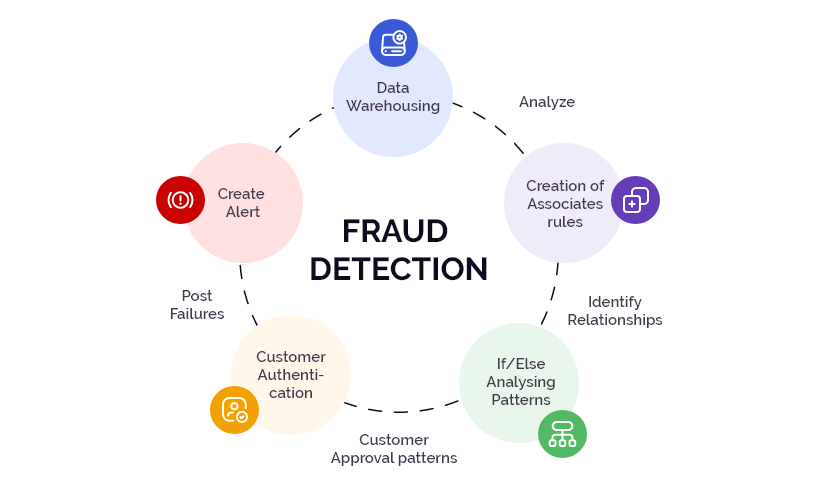Harnessing AI in Digital Advertising:
In the rapidly evolving landscape of digital advertising, artificial intelligence (AI) has emerged as a game-changer, redefining how brands approach their marketing strategies. From AI-powered ad targeting to automated ad bidding, AI technologies are revolutionizing the industry. This blog explores the multifaceted role of AI in digital advertising, highlighting its impact on ad optimization, personalization, and campaign management.The Role of AI in Digital Advertising
AI-Powered Ad Targeting
AI-powered ad targeting is one of the most significant advancements in digital advertising. Traditional ad targeting methods relied on broad demographics or manual segmentation, which often led to inefficiencies and wasted ad spend. AI, on the other hand, uses advanced algorithms to analyze vast amounts of data and identify patterns that are not immediately apparent to human marketers.
By leveraging machine learning in advertising, AI can predict user behavior and preferences with remarkable accuracy. This allows advertisers to target their ads to the most relevant audience segments, improving engagement rates and overall campaign effectiveness. For example, AI can analyze user interactions with ads and websites to create detailed profiles, enabling more precise targeting and personalization.
AI in Ad Optimization
Ad optimization is another area where AI has made a substantial impact. Machine learning algorithms for ads can continuously analyze performance data, identifying which ads are performing well and which are not. This real-time analysis allows for dynamic adjustments to ad campaigns, optimizing ad spend and maximizing ROI.
AI in ad optimization involves several key processes, including real-time ad optimization and predictive analytics for ads. By predicting which ads are likely to perform best based on historical data and current trends, AI can allocate budgets more effectively and adjust bidding strategies in real-time.
Gaming has evolved into a global phenomenon, transcending
traditional boundaries of entertainment to become a dynamic and immersive
experience that captivates millions of players worldwide. From casual mobile
games to expansive open-world adventures on consoles and PCs, gaming offers a
diverse range of experiences that cater to all interests and skill levels. The
industry has grown to include not just playing games but also streaming,
eSports competitions, and content creation, forming vibrant communities around
shared passions. Technological advancements like virtual reality (VR),
augmented reality (AR), and cloud gaming are pushing the limits of what’s
possible, providing ever more realistic and interactive environments. Whether
as a form of relaxation, a competitive pursuit, or a way to connect with
friends, gaming continues to redefine how we play, interact, and engage with
digital worlds. https://shorturl.at/JVRR0
Automated Ad Bidding
Automated ad bidding is a crucial aspect of AI in programmatic advertising. Traditional bidding methods required manual adjustments and were often slow and inefficient. AI has streamlined this process by automating ad bidding based on a variety of factors, including target audience, ad performance, and competitive landscape.
AI-driven ad strategies use real-time data to make bidding decisions, ensuring that ads are placed at the optimal time and place for maximum impact. This not only improves the efficiency of ad campaigns but also helps in managing budgets more effectively.
Ad Personalization with AI
Personalization is a key factor in driving engagement and conversions in digital advertising. AI enhances ad personalization by analyzing user data and tailoring ads to individual preferences and behaviors. This can include personalized content recommendations, dynamic ad creatives, and customized messaging.
AI tools for digital ads enable advertisers to create highly relevant and engaging ad experiences. By leveraging AI in creative ad design, brands can generate content that resonates with their target audience, improving the chances of conversion and enhancing the overall user experience.
AI in Ad Performance Analysis
Understanding ad performance is essential for refining strategies and improving outcomes. AI in ad performance analysis provides deep insights into how ads are performing across various channels and platforms. By analyzing data from multiple sources, AI can identify trends, measure effectiveness, and provide actionable recommendations.
AI-driven audience segmentation further enhances ad performance analysis by breaking down audiences into more granular segments. This allows for more targeted and effective campaigns, as advertisers can tailor their strategies to specific audience needs and preferences.
AI for Ad Fraud Detection
Ad fraud is a significant concern in digital advertising, leading to wasted budgets and skewed performance metrics. AI plays a crucial role in ad fraud detection by using machine learning algorithms to identify suspicious patterns and anomalies.
AI tools for detecting ad fraud analyze vast amounts of data in real-time, flagging potential fraudulent activity and preventing it from impacting campaigns. This helps ensure that ad budgets are spent effectively and that performance metrics accurately reflect true engagement and conversions.
Intelligent Ad Placement
Intelligent ad placement involves using AI to determine the most effective locations and times to display ads. AI-driven ad placement strategies analyze user behavior, engagement patterns, and contextual factors to optimize ad visibility and impact.
By leveraging AI in cross-channel advertising, brands can ensure that their ads are displayed across multiple platforms and devices in a cohesive and strategic manner. This holistic approach improves the overall effectiveness of ad campaigns and enhances brand visibility.
Data-Driven Advertising with AI
Data-driven advertising with AI involves using data insights to inform and guide ad strategies. AI-enhanced ad insights provide a deeper understanding of audience behaviors, preferences, and interactions, allowing for more informed decision-making.
Machine learning in advertising enables the analysis of complex data sets, identifying patterns and trends that can be used to refine ad strategies and optimize performance. This data-driven approach ensures that advertising efforts are aligned with audience needs and market trends.
AI in Creative Ad Design
Creative ad design is a crucial component of successful advertising. AI is transforming this process by enabling the creation of dynamic and personalized ad content. AI algorithms can generate ad creatives based on user preferences, trends, and engagement patterns.
AI in creative ad design also allows for the testing and optimization of different ad formats and messages. By analyzing how different creatives perform, AI can help advertisers refine their approach and create more effective ad content.
AI in Ad Campaign Management
Managing ad campaigns involves coordinating multiple elements, including targeting, budgeting, and creative design. AI streamlines this process by providing tools and platforms for efficient campaign management.
AI-driven ad campaign management platforms offer real-time insights, automated adjustments, and predictive analytics to help marketers optimize their campaigns. This includes managing budgets, adjusting bids, and refining targeting strategies to achieve the best possible outcomes.
Real
estate is a dynamic and ever-evolving industry that plays a crucial role in the
economy, offering a wide range of opportunities for investors, buyers, and
sellers alike. It encompasses the buying, selling, and leasing of properties,
including residential homes, commercial spaces, and industrial sites. In recent
years, the real estate market has been significantly influenced by factors such
as fluctuating interest rates, evolving buyer preferences, and the rise of
digital technology, which has transformed how properties are marketed and sold.
For investors, real estate remains a solid asset class, providing potential for
long-term appreciation, passive income through rentals, and portfolio
diversification. Whether navigating urban housing markets or exploring rural
developments, success in real estate requires a keen understanding of market
trends, location factors, and the needs of modern consumers. https://shorturl.at/q5lZ1
Conclusion
AI is revolutionizing digital advertising by introducing advanced technologies and strategies that enhance targeting, optimization, and personalization. From AI-powered ad targeting to automated ad bidding and intelligent ad placement, AI is transforming how brands approach their advertising efforts.
As we move into 2024 and beyond, the integration of AI in digital advertising will continue to evolve, offering new opportunities for brands to connect with their audiences and drive meaningful results. By leveraging AI tools and strategies, advertisers can stay ahead of the curve and achieve greater success in their digital advertising endeavors.





Comments
Post a Comment